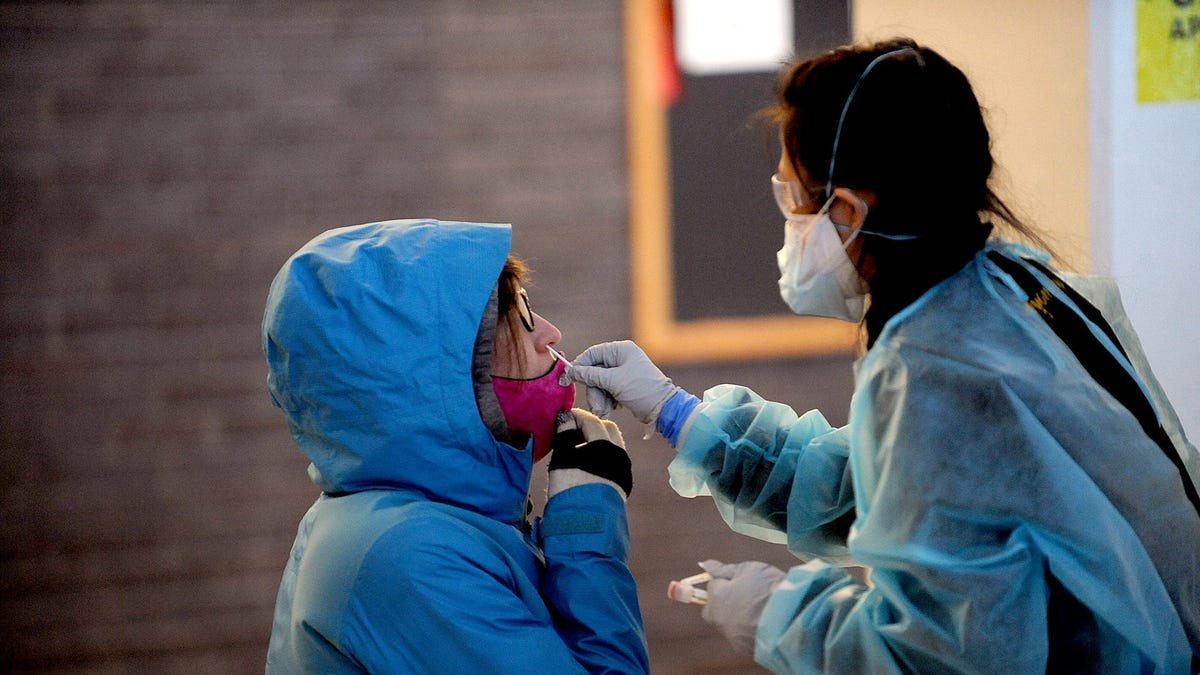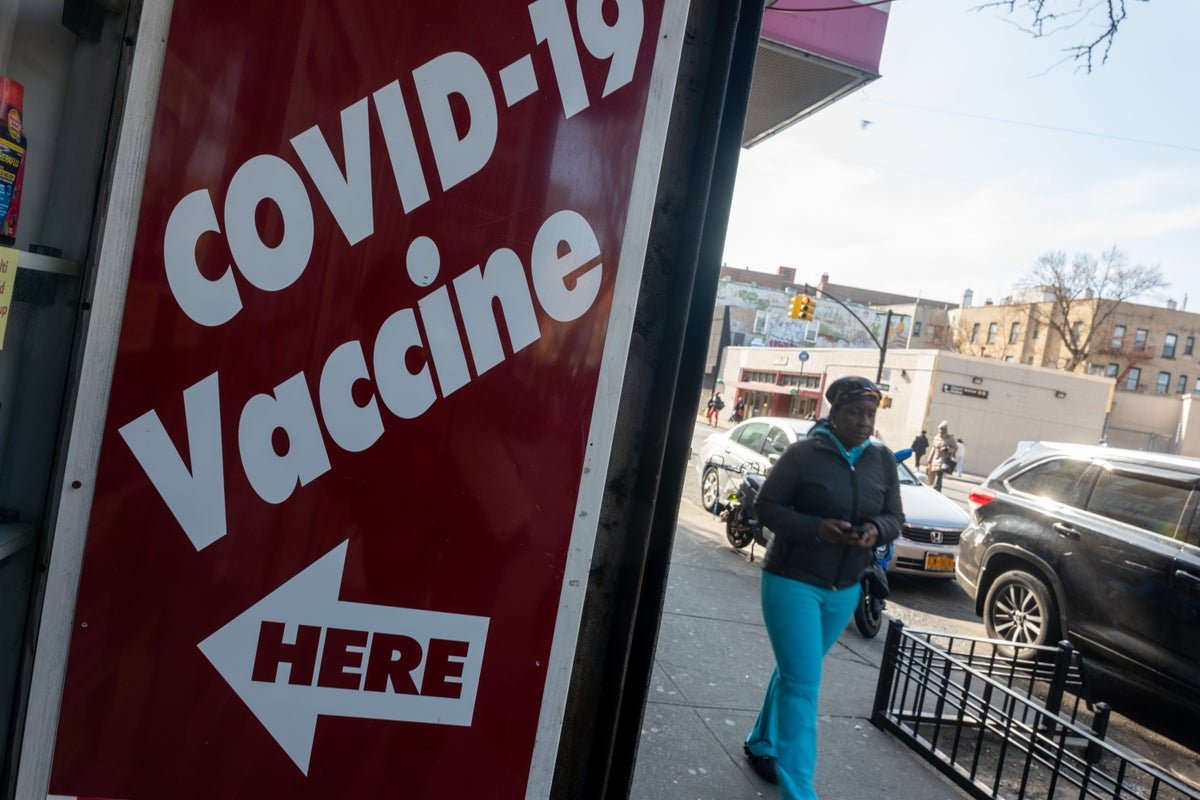Now Reading: What to know about the new COVID variant
-
01
What to know about the new COVID variant
What to know about the new COVID variant


New COVID booster guidelines set by FDA for healthy adults under 65
The FDA plans to require new clinical trials for approval of annual COVID-19 boosters for healthy Americans under 65.
- A new COVID-19 variant called NB.1.8.1 was first collected in China in January.
- As of May 27, less than 20 cases of the new variant had been reported in the U.S.
- Currently approved COVID-19 vaccines are expected to remain effective against the variant, according to the WHO.
A new COVID-19 variant sweeping through China has yet to make a sizable footprint in the U.S., the Centers for Disease Control and Prevention (CDC) says.
In January, a new COVID-19 variant known as NB.1.8.1 was first detected in China. On May 23, the World Health Organization (WHO) classified NB.1.8.1 as a variant that public health officials “may require prioritized attention and monitoring.”
As of Tuesday, May 27, less than 20 cases of NB.1.8.1 had been reported in the U.S., a CDC spokesperson told USA TODAY. This figure is too low to be added to the CDC’s COVID Data Tracker dashboard, the spokesperson added, though they did not clarify what the threshold for adding new variants to the dashboard is.
Here’s what to know about the COVID-19 NB.1.8.1 variant.
What is the NB.1.8.1 variant?
NB.1.8.1 is one of the latest variants of COVID-19, a “slightly upgraded version” of the LP.8.1 variant that is prominent right now, said Subhash Verma, microbiology and immunology professor at the University of Nevada, Reno. For comparison, LP.8.1 made up 70% of reported COVID-19 cases in the U.S. between April 26 and May 10, as reported by the CDC.
Verma said NB.1.8.1 may be able to be transferred more easily than LP.8.1. Additionally, he said that NB.1.8.1 is able to evade antibodies created by vaccines or past infections more easily than LP.8.1.
“NB.1.8.1 is likely to spread more rapidly and evade our immune defenses more easily than LP.8.1, which is why this variant requires careful monitoring,” Verma said.
What are the symptoms of NB.1.8.1?
The CDC has not outlined symptoms that are specific to the NB.1.8.1. variant. Verma said that NB.1.8.1 symptoms appear similar to those of earlier COVID-19 variants.
The CDC outlines the following as common COVID-19 symptoms:
- Fever or chills
- Cough
- Shortness of breath or difficulty breathing
- Sore throat
- Congestion or a runny nose
- New loss of taste or smell
- Fatigue
- Muscle or body aches
- Headache
- Nausea or vomiting
The CDC advises seeking medical care if you experience any of the following symptoms:
- Trouble breathing
- Persistent pain or pressure in the chest
- New confusion
- Inability to wake or stay awake
- Depending on skin tone, lips, nail beds and skin may appear pale, gray or blue
How many NB.1.8.1 cases have been reported in the US?
Less than 20 NB.1.81. cases had been reported in the U.S., as of May 27, a CDC spokesperson told USA TODAY.
How many NB.1.8.1 cases have been reported globally?
According to the World Health Organization, as of May 18, 518 cases of NB.1.8.1 had been submitted to the Global Initiative on Sharing All Influenza Data (GISAID) from 22 countries.
How can you protect yourself from NB.1.8.1 and other variants?
The World Health Organization states that currently approved COVID-19 vaccines are expected to remain effective against the NB.1.8.1 variant.
The CDC advises that everyone over the age of six months get the 2024-2025 COVID-19 vaccine, specifically the 2024-2025 Moderna COVID-19 Vaccine.
People who have never received a COVID-19 vaccine, are age 65 and older, are immunocompromised, live at a long-term care facility, are pregnant, breastfeeding, trying to get pregnant, and/or want to avoid getting long COVID, should get the vaccine, especially.
Who should get a COVID-19 booster shot?
Updated and annual COVID-19 vaccines are actually not “booster shots.” Boosters are additional doses of the same vaccine that are needed to maintain immunity, according to the Cleveland Clinic. Updated vaccines protect against new variants of a virus, like NB.1.8.1.
How to (still) get a COVID-19 test for free
Increasing Community Access to Testing, Treatment and Response (ICATT), a federal program, continues to provide free COVID-19 testing to individuals without health insurance.
According to the CDC, as of May 27, more than 19,000 locations across the country offer free testing. To find a location near you that offers free testing, visit testinglocator.cdc.gov/Search.
Greta Cross is a national trending reporter at USA TODAY. Story idea? Email her at gcross@usatoday.com.


















































